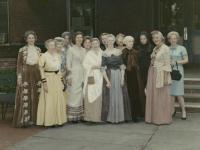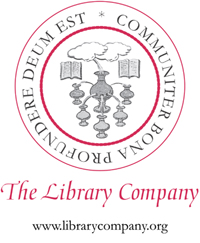During this year's Women's History Month, celebrate the Ralston Center’s 200th anniversary with a free workshop on Tuesday, March 28 at 6:00 p.m.
Terry Snyder (Librarian of the College and Visiting Associate Professor of History at Haverford College) and Neville Strumpf (President of the Ralston Center Board of Managers and Emeritus Professor of Nursing at the University of Pennsylvania) will offer an historical overview of care for older persons in Philadelphia, using the history of the Ralston Center as a prism of such efforts in the city and the nation.
Sarah Weatherwax (The Library Company of Philadelphia's Curator of Prints and Photographs) will also present an illustrated overview of the portrayal of elderly women throughout the 19th and early 20th centuries based on the Library Comapny’s graphics collections. From trade cards to comic valentines to family photographs, Ms. Weatherwax will explore how the graphic depiction of older women reflects the public’s view of their place in society.
Act 48/CEU credit is available for educators.
Background:
In 1817, Sarah Ralston, daughter of a Mayor of Philadelphia Mathew Clarkson and wife of merchant Robert Ralston brought together a group of philanthropic women with a goal of establishing a home for elderly women who had fallen on hard times namely indigent widows and older single women. Thus a path was established to do something about a problem which government was in no position to address—offer a caring alternative to a particular older population of women in need.
The Indigent Widows and Single Women’s Society (IWSWS) was the first nondenominational organization of its kind. Its Board of Managers consisted only of women, many of whom came from elite Philadelphia families. This arrangement continued well into the late 20th century, when the organization, now known as Ralston Center, shifted its focus away from institutional care, began to consider the needs of all vulnerable older adults in the community and included men on its Board.
Today, the Ralston Center is providing core services to the city’s elderly, particularly those in West Philadelphia through wellness, housing, and supportive services and Age-Friendly initiatives.



